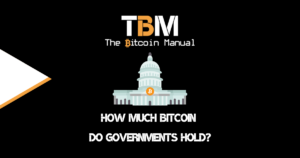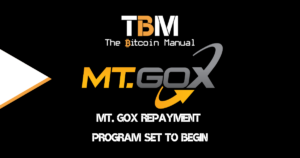Spend Bitcoin
Home » Apps, Dapps & Lapps » Spend Bitcoin
Bitcoin is a savings technology, it’s what it is designed for first of all, and it’s what it’s best at doing, guarding your purchasing power. Despite bitcoin’s continuous appreciation in purchasing power, some of you will want to tap into that value.
When tapping into your bitcoin stash, the first choice would be to sell your bitcoin for cash. Then spending that cash on the goods and services you want to acquire. Your second option would be to spend your bitcoin directly with the merchant. Sure, merchants may not want to accept your bitcoin, but there are payment companies that will. These fintech services will happily pay merchants with fiat as these third party services facilitate the trade.
As a bitcoin holder, you can sign up for any one of these services and instead of having to cash out a certain amount of bitcoin, you can conveniently draw down on your bitcoin holdings by only spending on what you want to buy when you want to buy it. This means you can still enjoy bitcoins price appreciation over time while you wait to spend it instead of sitting in cash.

How bitcoin cards work?
Bitcoin cards take on the debit card method and act like prepaid debit cards that can be loaded with bitcoin to make online and in-store purchases from merchants that don’t accept cryptocurrencies.
These cards convert stored Bitcoin into fiat currency at the point of purchase. You, as the user, would first send some of your bitcoin to the service to load up credit on your account.
When you need to make a purchase, online or in-person, you will perform the same as you would with any of your debit cards. All the conversions are happening with the service provider. The card provider removes the amount of bitcoin needed to make the purchase while paying the merchant with cash instead.
In some cases, bitcoin debit cards can also be used to withdraw cash from ATMs in whatever fiat currencies the card supports.
How do I get a bitcoin card?
Bitcoin debit cards are typically issued by bitcoin exchanges or fintech companies and usually require individuals to create an account and/or digital wallet to apply for a card. These services also require users to validate their identity using the Know Your Customer (KYC) verification process. Some cards must also be purchased, with fees that vary. Others require you to make an investment in their native token currency in order to get better benefits, which is a gimmick you should avoid.
Bitcoin card issuers are also custodial services, so you have to give up ownership of your bitcoin to the service provider to fund your account if you’re going to spend it.
Where can I use a bitcoin card?
Bitcoin cards are issued in partnership with major credit card services like Visa and Mastercard and can be used online or in-store wherever the major credit card is accepted. In certain countries and cases, Cardholders can also withdraw cash at any ATM supported by the credit service.
It’s important to note that Bitcoin cards can only be issued to residents of specific regions in which the service provider is licenced and regulated. The cards also support certain fiat and will charge cardholders for converting bitcoin into fiat currencies that are considered foreign.
Are Bitcoin cards safe to use?
Most Bitcoin cards come with standard security features like two-factor authentication, biometric scanning, and mobile codes that make them as safe to use as most major credit cards. Cardholders can also freeze or cancel their card instantly, usually through a mobile app.
Nonetheless, Bitcoin cards are less secure than hot wallets or cold wallets as they are custodial services that curry third party risk. Technically, transferring funds from a wallet to the debit card provider can increase the risk of cyber-attacks, as can keeping funds with these online exchanges.
Considerations when spending bitcoin
If you are going to spend your bitcoin, you need to consider two things, one of them being the opportunity cost involved in your purchases.
Opportunity costs
None of us knows how high bitcoin will go before prices or rather growth in purchasing power levels off. What may seem like a small amount of bitcoin by today’s standards could end up being worth a lot more in the future.
You don’t want to end up being the bitcoin pizza guy spending bitcoins value today, only to find you spent future thousands or millions on purchases you could have made with fiat.
If you don’t have any cash to spend, then, of course, spending your bitcoin is a viable option. You don’t want to starve or suffer simply to hodl for the future; you still need to live. Alternatively, if you have such a large stack of bitcoin that the opportunity cost wouldn’t matter to you, then, by all means, go ahead and draw down on your stack and enjoy yourself.
Tax implications
The other consideration is the tax implication, don’t think that because you’re not liquidating into cash that you can avoid taxable events. You would need to keep track of the date and value of the UXTO you’re using to fund the card and the price appreciation in fiat.
Once you spend it, you need to consider the price appreciation over that time and if that qualifies as a taxable event. We recommend consulting with your local tax professional and the service provider you’re using to get a clear picture of your tax obligations should you spend your bitcoin in your jurisdiction.
What are bitcoin cash back programs?
As you can probably tell, spending your bitcoin is a hard decision, and very few people are going to do it in its current state, but that doesn’t mean bitcoin cannot be an excellent incentive for spending. Cashback programs are growing ever popular with consumers as instead of earning useless points from their bank, they make bitcoin.
Cashback program cardholders will earn a percentage cashback on all purchases automatically converted to bitcoin and placed into their account every month. If you spend more, you may qualify for higher cashback rewards depending on the service provider you are using.
To qualify for these bitcoin rewards, users will need to sign up for the program and KYC to receive a card; once the card is issued, you can link it to a bank account to fund it. As you spend using this card instead of your standard bank account, you will gain satoshis on every purchase made with these cashback cards.
Apps you can use to shop with bitcoin
| Platform | Services | Website |
|---|---|---|
| Binance | Buy, Sell, Spend Bitcoin & Cashback | https://www.binance.com/en/cards |
| BitPay | Buy, Sell, Spend Bitcoin | https://bitpay.com/ |
| BlockFi | Buy, Sell, Spend Bitcoin & Cashback | https://blockfi.com/credit-card/ |
| Coinbase | Buy, Sell, Spend Bitcoin & Cashback | https://card.coinbase.com/ |
| Coincorner | Buy, Sell, Spend Bitcoin & Cashback | https://www.coincorner.com/ |
| Crypto | Buy, Sell, Spend Bitcoin & Cashback | https://crypto.com/cards |
| Fold – ₿ Bitcoin Only | Earn Bitcoin Cashback | https://foldapp.com/ |
| Lolli – ₿ Bitcoin Only | Earn Bitcoin Cashback | https://www.lolli.com/ |
| Nuri | Buy, Sell, Spend Bitcoin | https://nuri.com/ |
| Satsback – ₿ Bitcoin Only | Earn Bitcoin Cashback | https://satsback.com/ |
| sMiles – ₿ Bitcoin Only | Buy, Sell, Spend Bitcoin & Cashback | https://www.smilesbitcoin.com/ |
| Spedn | Buy, Sell, Spend Bitcoin & Cashback | https://spedn.io/ |
| The Bitcoin Company – ₿ Bitcoin Only | Cashback | https://thebitcoincompany.com/ |
| Unbanked – Blockcard | Buy, Sell, Spend Bitcoin & Cashback | https://unbanked.com/ |
Share with a friend
If you thought this information was helpful why not share it on your favourite social media network and encourage others to learn more about Bitcoin
The latest news from our blog

How Much Bitcoin Do Governments Hold?
Germany’s latest sale of 50,000 Bitcoin has revealed a number of large Bitcoin holders that very few of us pay attention to. Believe it or

Paraguay Seizing Bitcoin Mining Operations
The biggest incentive for Bitcoin miners to move to Paraguay comes from the Itaipu Dam, which is co-owned by Brazil and Paraguay. The hydroelectric dam is

Mt. Gox Repayment Program Set To Begin
2024 has been the year of liquidation. First, the German government decided to offload the 50,000 coins it seized from Movies 2k. During those 27
